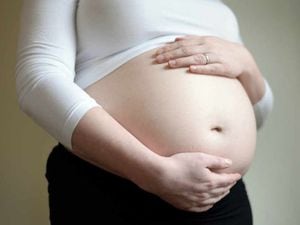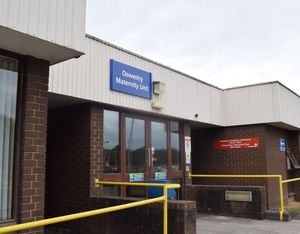Shropshire birth unit cuts plan is 'shocking' - leading midwifery expert
Plans to stop births at Shropshire’s midwife-led units have been described as “shocking” and “disappointing” by one of the country’s top midwifery experts.

Mary Newburn, executive manager at the Midwifery Unit Network, said the service should be provided for expectant mothers to give birth close to home.
It comes as it emerged that inpatient services at Oswestry midwife-led unit will now be suspended until 8am on March 10.
The unit will remain open between 8am and 8pm for antenatal and postnatal services.
Bosses at The Shrewsbury and Telford Hospital NHS Trust, which runs the unit, say the decision has been taken to maintain the safety of women using its services.
The Midwifery Unit Network, which supports ready access to birth centres for women with uncomplicated pregnancies, has called for more midwifery units, not fewer.

Shropshire Clinical Commissioning Group says births at the units in Oswestry, Ludlow and Bridgnorth are not sustainable and is instead proposing that women give birth in Telford, Shrewsbury or at home.
Ms Newburn said that following the publication of the National Maternity Policy the national position was that there should be ready access to birth centres for women with uncomplicated pregnancies.
“We have been keeping a close watch on the goings-on in Shropshire and are shocked and disappointed by the poor management over recent years which has simultaneously failed to develop and actively run down what were once well-established community midwifery birth services,” she said.
“We were shocked to hear that the Shropshire Clinical Commissioning Group plans to close the beds at Oswestry, Ludlow and Bridgnorth maternity units.
“For many women and their partners, planning for birth close to home is reassuring, it reduces the anxiety and discomfort of a long car journey during labour, and is less disruptive for the family.
“Local midwifery units, being small, are peaceful places with long-serving, dedicated, staff known to local women. Large units can be dehumanising at a time when women feel vulnerable.”
She said the specialist medical unit should be kept for those who need medical care, meaning the quality of care would be better for both those with more complex pregnancies and for those most likely to have a straightforward labour and birth.
Julia Cumberlege, chair of the National Maternity Review which led to the creation of the network, said: “Our vision is for more midwifery units, not fewer. They are especially needed in rural areas.”
